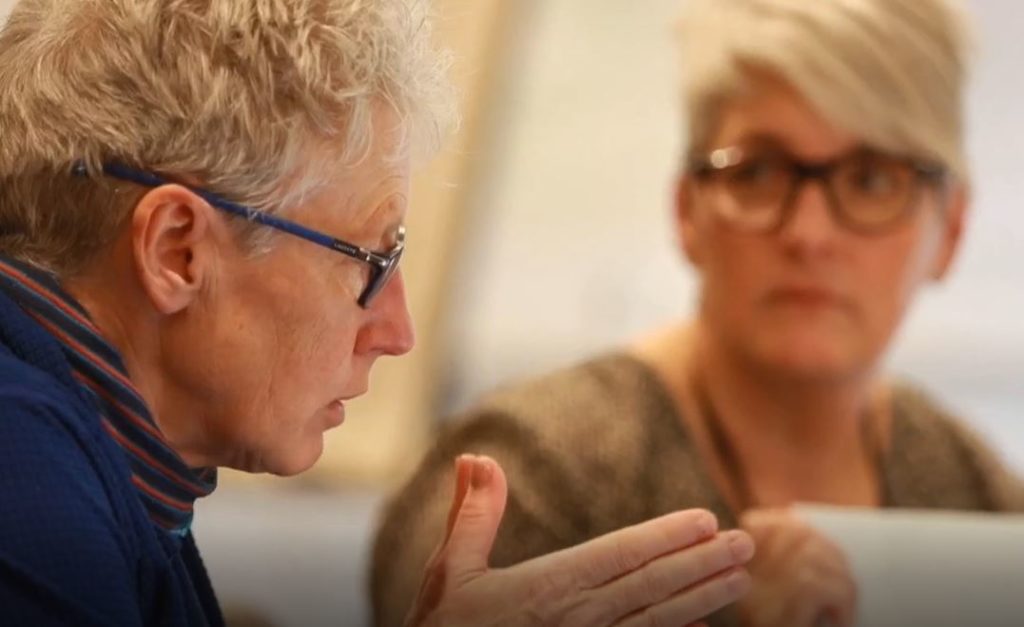A single, one-size‐fits‐all framework for patient and public involvement may be less useful than a range of resources that can be adapted and used locally, a study supported by the NIHR Oxford BRC has concluded.
The study, ‘Frameworks for supporting patient and public involvement in research: Systematic review and co‐design pilot’, was published in the publication, Health Expectations.
Its researchers believe it is the first attempt at a comprehensive synthesis of frameworks for supporting patient and lay involvement in health research.
It found that there already exist numerous published frameworks for supporting and evaluating patient and public involvement (PPI); they have different provenances, intended purposes, strengths and limitations.

Prof Trish Greenhalgh (left) participating in a patient involvement session.
The Oxford BRC’s theme lead for Partnerships for Health, Wealth and Innovation, Prof Trish Greenhalgh, was the lead author on the paper. She said: “The Oxford BRC, which is based in one of the UK’s leading medical and biotechnology research hubs, has a strong commitment to strengthening patient and public input to our research. Furthermore, there is a strong expectation from the NIHR for us to do so. We therefore sought to scope which tools or frameworks could help us to support, evaluate, improve and report on our PPI activities.
“Policymakers, researchers and funding bodies all agree that patients and the public should be involved in research, but not everyone agrees on what this involvement should look like and why it should happen – is it for reasons of transparency and accountability, including real-world experience or a feeling that patients have a right to influence research that impacts on their condition?
“Many of these different groups have developed their own frameworks, tools or guidelines to improve their own performance or measure the performance of others – our study found more than 60 existing frameworks, most of them robustly developed with a particular emphasis or purpose in mind. Many of them – however evidence‐based or theoretically informed they are – had little use beyond the groups that developed them.
“Nonetheless there were some important and striking similarities between them – for example around diversity, leadership, training and good governance – that could form the basis of a common set of evidence-based resources on which different kinds of framework could be produced,” she said.

The Oxford team suggests that academics who want to strengthen the patient or lay involvement in their own research should explore existing PPI frameworks (which are described in the paper) to see if there is one that can be used or adapted for their own purposes.
If such a framework cannot be found, the Oxford researchers have, based on their findings, created a facilitator guide and evidence‐based resources and prompts.
They also recommend that researchers work with patient collaborators and professional facilitators to plan and deliver a series of co‐design workshops to generate a locally relevant and locally owned framework.
“A locally designed framework that builds on existing evidence-based resources are likely to be more effective than any single, one-size‐fits‐all framework,” Prof Greenhalgh said.